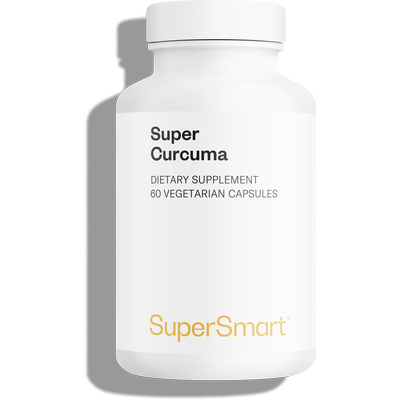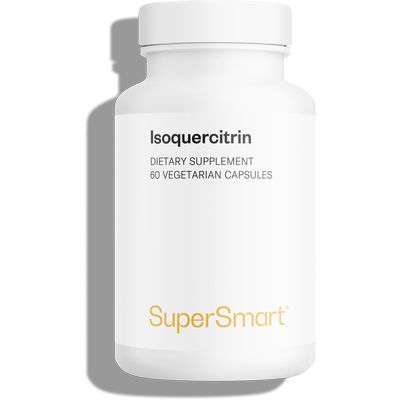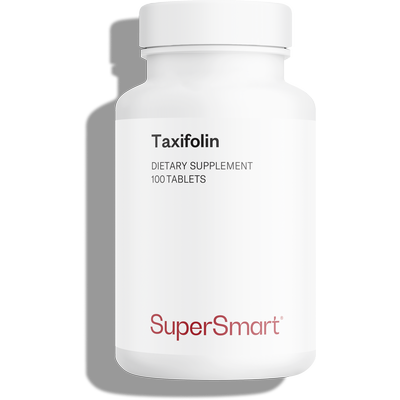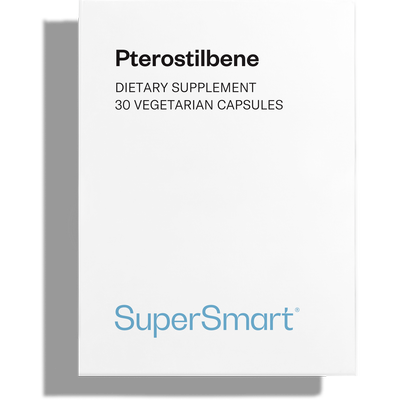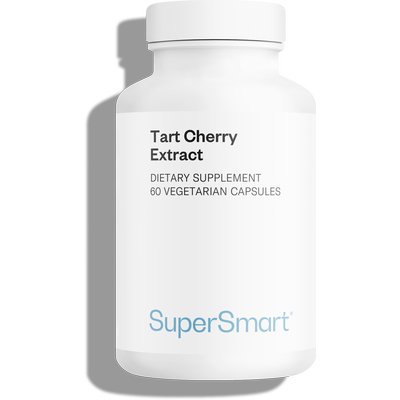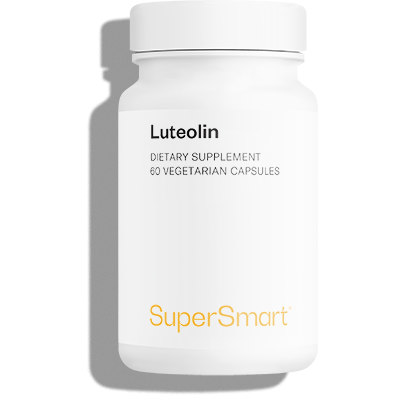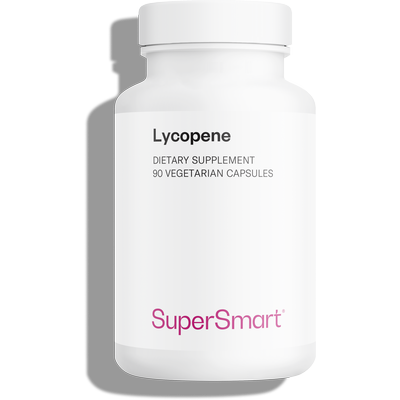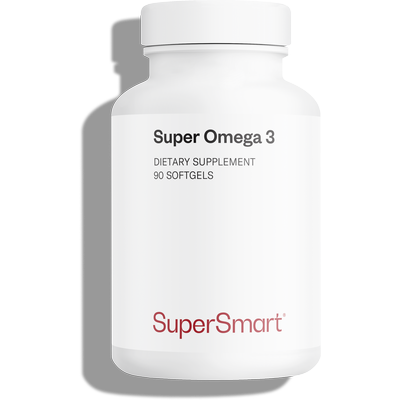15-05-2017
A plan of attack against atherosclerosis
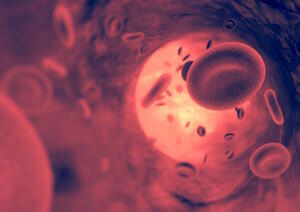 Atherosclerosis is a degenerative disease which affects the blood vessel walls. It is characterised by the accumulation of white blood cells, fats and calcium on the inside of the arterial wall, leading to the formation of plaque which weakens and impairs the artery. To prevent these atheromatous plaques from forming and obstructing the principal arteries, and/or to reduce existing atherosclerotic damage to blood vessels, a three-pronged attack is required, using specific substances that target inflammation, oxidative stress and platelet aggregation.
Atherosclerosis is a degenerative disease which affects the blood vessel walls. It is characterised by the accumulation of white blood cells, fats and calcium on the inside of the arterial wall, leading to the formation of plaque which weakens and impairs the artery. To prevent these atheromatous plaques from forming and obstructing the principal arteries, and/or to reduce existing atherosclerotic damage to blood vessels, a three-pronged attack is required, using specific substances that target inflammation, oxidative stress and platelet aggregation.
Specifically, the action plan’s three simultaneous steps are:
-
- Reduce inflammatory processes in the endothelial cells that form the inner layer of the arterial wall - the endothelium.
- Protect against oxidative stress and inhibit oxidation of LDL-cholesterol at this level.
- Prevent aggregation of blood platelets and improve blood flow.
It is also important to ensure a good intake of omega-3 fatty acids, found in oily fish, in order to achieve a maximum omega-6 to omega-3 ratio of 3:1. And taking selected supplements is also vital for controlling this silently-progressive disease.
Target no. 1: Reduce inflammatory processes and calcium deposits in the arteries
Inflammation is central to endothelial dysfunction. Tackling it requires the ingestion of substances recognised for their ability to combat inflammatory processes.Curcuma for its powerful vascular anti-inflammatory effect Oxidation of LDL-cholesterol plays a key role in the development of atherosclerosis. Scientists have reported that curcumin, an active ingredient in curcuma (also called turmeric), reduces levels of total and LDL-cholesterol, and protects cholesterol and sub-cellular membranes from lipid peroxidation2. A meta-analysis3, involving a total of almost 350 subjects looked at the effects of curcuminoids on levels of C-reactive protein (CRP), an inflammation marker and risk factor for cardiovascular disease and atherosclerosis. It found that compared with a placebo group, subjects given curcuminoid supplements demonstrated a significant fall in CRP levels. The mechanism responsible may be suppressed production and release of pro-inflammatory cytokines.
Isoquercitrin or taxifolin
Dihydroquercetin (taxifolin), isoquercitrin or the more bioavailable EMIQ (enzymatically-modified isoquercitrin) have an anti-atherogenic effect, supplementation having been recently shown to significantly suppress the atherosclerotic lesion area in the aortic sinus4.
In overweight individuals, it lowers LDL-cholesterol and inhibits platelet aggregation.
MK-7 to reduce calcium deposits in the arteries
Vitamin K activates the production of osteocalcin by osteoblasts. It thus ensures mineralisation of bone and dental tissue by capturing and distributing calcium around the body. But it also drives out calcium from the arteries and soft tissues keeping them free from calcification and thus prevents atherosclerosis and aortic calcification5. In addition, vitamin K2 is recognised for its vital role in blood coagulation as it participates in the production of four coagulation factors including factor II (prothrombin) and its conversion into thrombin.
Of the menaquinones that make up vitamin K, menaquinone-7, or MK-7, extracted from natto, is the fraction with the highest bioavailability and activity.
Last but not least, palmitoleic acid, more commonly known as omega-7, is a rare, monounsaturated fatty acid. Studies show it significantly increases levels of HDL-cholesterol and decreases those of total and LDL-cholesterol, and also measurably lowers inflammation levels through its effect on CRP.
Target no. 2: Combat oxidative stress and prevent oxidation of LDL-cholesterol
Excess free radicals damage the inner walls of medium-sized and large arteries. When LDL (low-density lipoprotein) cholesterol becomes oxidised by free radicals, it migrates more easily, across the endothelium. Natural substances can act quickly and effectively against these oxidative processes which are considered key factors in the development of cardiac disease.Consume full-spectrum vitamin E Vitamin E actually comprises eight specific, fat-soluble, natural antioxidant compounds: four tocopherols, and four tocotrienols which boost the tocopherols’ action. The tocotrienols differ from the tocopherols only in that they have more unsaturated bonds which enables them to penetrate cell membranes more easily. They are recognised for supporting cardiovascular function by maintaining supple, healthy arteries. They promote a balanced lipid profile, combat the development of atheromatous plaque and help maintain healthy blood sugar and triglyceride levels.
Supplementing with tocotrienols and tocopherols (particularly alpha- and gamma-tocopherols) thus inhibits oxidation of LDL-cholesterol, and prevents platelet aggregation and inflammation in blood vessels. In patients with atherosclerosis, supplementation stabilises or reduces stenosis of the carotid artery.
Take pterostilbene or resveratrol
The polyphenols include two key free radical scavengers:
-
- Resveratrol, which improves the health of blood vessel endothelial tissue. One mechanism may be its ability to generate new endothelial progenitor cells. Like pterostilbene, it also reduces oxidation of LDL-cholesterol and platelet aggregation and promotes relaxation of the arterioles.
- Pterostilbene, the double methylated version of resveratrol, which - as shown in studies on mice and human cells - prevents LDL-cholesterol accumulation and combats oxidative stress.
-
- Extracts of Tart Cherry, the skin of which contains proanthocyanidins which are widely recognised for their ability to combat lipid peroxidation6 and atherosclerotic processes. 7,8
- Pomegranate, rich in punicosides, which helps to maintain a healthy lipid profile and in particular, prevents oxidation of LDL-cholesterol. Its ellagic acid content may also counter and even reduce plaque deposits in the aorta and thus lower the risk of thrombosis.
- Luteolin, a flavonoid found in artichoke leaves, which prevents LDL-cholesterol oxidation and thus reduces the risk of atherosclerosis9.
- Lycopene, a carotenoid which in addition to protecting the prostate, also reduces oxidation of LDL-cholesterol, improves endothelial function and lowers blood pressure10.
- Phlorotannins from the algae Ecklonia cava which improves blood viscosity by balancing plasmin11 and reduces oxidation of LDL-cholesterol12.
- Baicalin, a polyphenol compound and part of the flavonoid family which has anti-atherogenic and anti-hypertensive properties.
Target no. 3: Prevent blood platelet aggregation and improve blood flow
Ensure an adequate intake of long-chain omega-3 fatty acids A meta-analysis13 of randomised trials of between three months’ and five years’ duration showed that coronary heart disease patients who supplemented with omega-3 had a lower risk of all-cause mortality. Specific analysis of patients diagnosed with coronary atherosclerosis but who had not yet suffered a heart attack or heart failure revealed that compared with placebo, those taking omega-3 supplements had a 51% lower risk of major cardiovascular events. The benefits of omega-3 supplementation thus include improvements in lipid levels (reductions in LDL and triglycerides and an increase in HDL), blood pressure, cardiac and vascular function, coagulation (blood viscosity) and elasticity of arteries.And include serrapeptase to improve circulation Given that serrapeptase is able to digest dead tissue, it can be used to reduce arterial obstructions and facilitate blood flow in blocked arteries.
Alongside these three main targets, it is also a good idea to consider other approaches and include:
-
- L-arginine which increases production of nitric oxide and thus promotes vasodilation of blood vessels.
- L-proline which is an amino acid and chelator of Lp(a), the main component of atheromatous plaque.
- Glisodin® which may play a preventive role in atherosclerosis by combatting thickening of the arteries, particularly the carotid artery14.
References
1- García-Lafuente, A., E. Guillamón, et al. (2009). "Flavonoids as anti-inflammatory agents: implications in cancer and cardiovascular disease." Inflammation Research 58(9): 537-552.
2- Ramirez-Tortosa MC et al. Oral administration of a turmeric extract inhibits LDL oxidation and has hypocholesterolemic effects in rabbits with experimental atherosclerosis. Atherosclerosis, 1999 Dec:; 147(2):374-8
3- Sahebkar A. Are Curcuminoids Effective C-Reactive Protein-Lowering Agents in Clinical Practice? Evidence from a Meta-Analysis. Phytother Res. 2013 Aug 7. doi: 10.1002/ptr.5045
4- Motoyama K1, Koyama H, Moriwaki M, Emura K, Okuyama S, Sato E, Inoue M, Shioi A, Nishizawa Y. Atheroprotective and plaque-stabilizing effects of enzymatically modified isoquercitrin in atherogenic apoE-deficient mice. Nutrition. 2009 Apr;25(4):421-7. doi: 10.1016/j.nut.2008.08.013. Epub 2008 Nov 20.
5- Geleijnse JM1, Vermeer C, Grobbee DE, Schurgers LJ, Knapen MH, van der Meer IM, Hofman A, Witteman JC. Dietary intake of menaquinone is associated with a reduced risk of coronary heart disease: the Rotterdam Study. J Nutr. 2004 Nov;134(11):3100-5.
6- Mulabagal V, Lang GA, DeWitt DL, Dalavoy SS, Nair MG. Anthocyanin content, lipid peroxidation and cyclooxygenase enzyme inhibitory activities of sweet and sour cherries. J Agric Food Chem. 2009 Feb 25;57(4):1239-46.
7- Seymour EM, Singer AA, Kirakosyan A, Urcuyo-Llanes DE, Kaufman PB, Bolling SF. Altered hyperlipidemia, hepatic steatosis, and hepatic peroxisome proliferator-activated receptors in rats with intake of tart cherry. J Med Food.2008 Jun;11(2):252-9.
8- Seymour EM, Kondoleon MG, Huang MG, Kirakosyan A, Kaufman PB, Bolling SF. Tart cherry-enriched diets reduce atherosclerosis and mortality in mice. FASEB J. Apr 2011;25
9- Brown JE, Rice-Evans CA. Luteolin rich artichoke extract protects low density lipoprotein from oxidation in vitro. Free Radical Research 1998;29:247–55
10- Kim JY1, Paik JK, Kim OY, Park HW, Lee JH, Jang Y, Lee JH. Effects of lycopene supplementation on oxidative stress and markers of endothelial function in healthy men. Atherosclerosis. 2011 Mar;215(1):189-95. doi: 10.1016/j.atherosclerosis.2010.11.036. Epub 2010 Dec 9.
11- Fukuyama Y, Kodama M, Miura I, Kinzyo Z, Kido M, Mori H, Nakayama Y, Takahashi M. Structure of an anti-plasmin inhibitor, eckol, isolated from the brown alga Ecklonia kurome Okamura and inhibitory activities of its derivatives on plasma plasmin inhibitors. Chem Pharm Bull (Tokyo). 1989 Feb;37(2):349-53.
12- Kang K1, Park Y, Hwang HJ, Kim SH, Lee JG, Shin HC. Antioxidative properties of brown algae polyphenolics and their perspectives as chemopreventive agents against vascular risk factors. Arch Pharm Res. 2003 Apr;26(4):286-93.
13- Wen YT, Dai JH, Gao Q. Effects of Omega-3 fatty acid on major cardiovascular events and mortality in patients with coronary heart disease: A meta-analysis of randomized controlled trials. Nutr Metab Cardiovasc Dis. 2013 Dec 25. pii: S0939-4753(13)00308-6. doi: 10.1016/j.numecd.2013.12.004
14- cloarec m, cAillArd p, provost jc, dever jm, elbeze y, zAmAriA n. GliSoDin, a vegetal sod with gliadin, as preventive agent vs. atherosclerosis, as confirmed with carotid ultrasound-B imaging. Eur Ann Allergy Clin Immunol. 2007;39:45-50.
Order the nutrients mentioned in this article
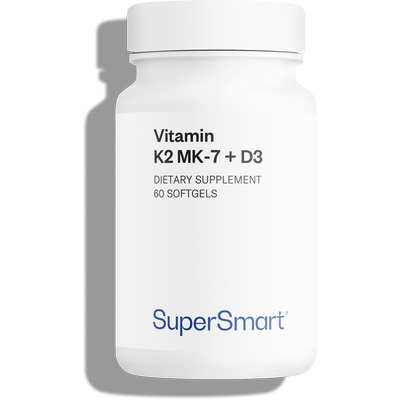
Now in a single daily dose! A form of vitamin K2 with high bioavailability
www.supersmart.com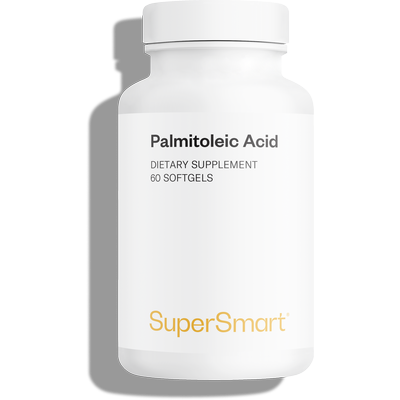
A purified form of omega-7 to help combat type II diabetes, atherosclerosis and metabolic syndrome.
www.supersmart.com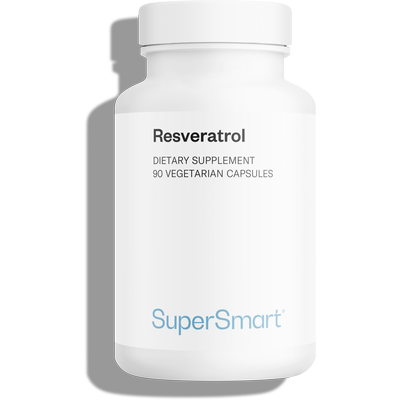
The most effective and best-researched phytonutrient for maintaining and protecting health
www.supersmart.com
Antioxidant phytonutrient with multiple health benefits. Enriched, more complete formula.
www.supersmart.com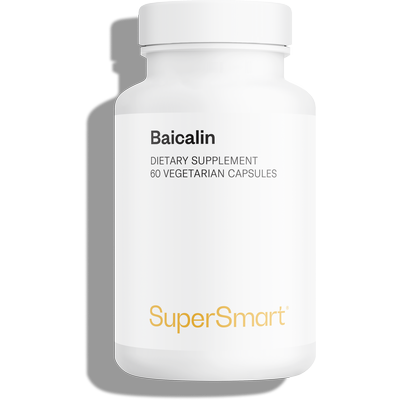
An extract of skullcap with a high concentration of flavones and multiple properties.
www.supersmart.com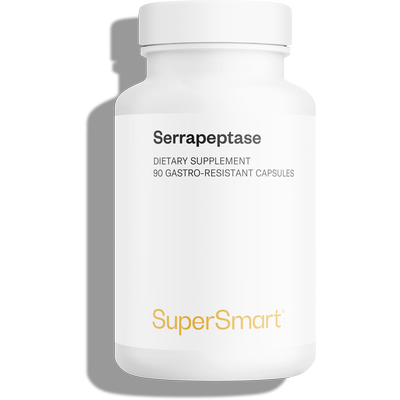
Double dose : 60,000 IU of serratia peptidase per capsule. Now in gastro-resistant capsules
www.supersmart.comFurther reading
24-06-2019
Better known as PEA, palmitoylethanolamide is a natural and powerful active principle discovered in 1957. Since then, it has consistently been the subject of new...
Read more01-08-2018
Inflammation – whether unseen or painful – has always been at the root of a variety of incapacitating ‘diseases of civilisation’, such as cardiovascular disease,...
Read more29-07-2019
Magnesium has until now been mainly known as an essential mineral for nervous system balance, cardiovascular regulation, muscle function and bone health. Now it seems...
Read more© 1997-2026 Fondation pour le Libre Choix
All rights reserved
All rights reserved
Free
Thank you for visiting our site. Before you go
REGISTER WITHClub SuperSmart
And take advantage
of exclusive benefits:
of exclusive benefits:
- Free: our weekly science-based newsletter "Nutranews"
- Special offers for club members only



